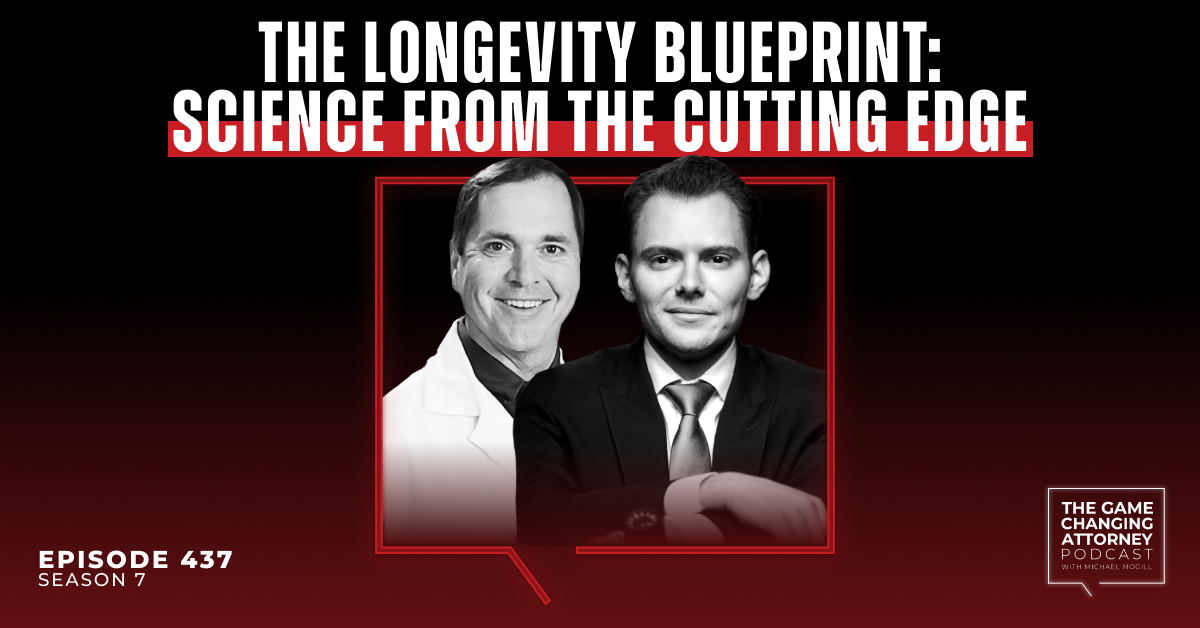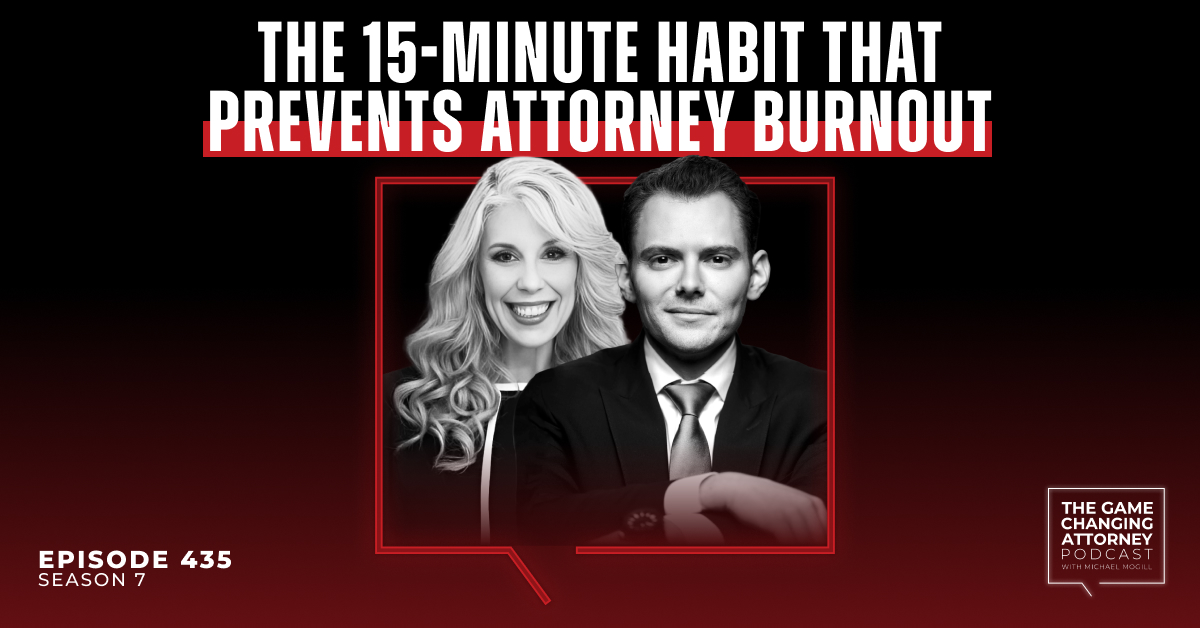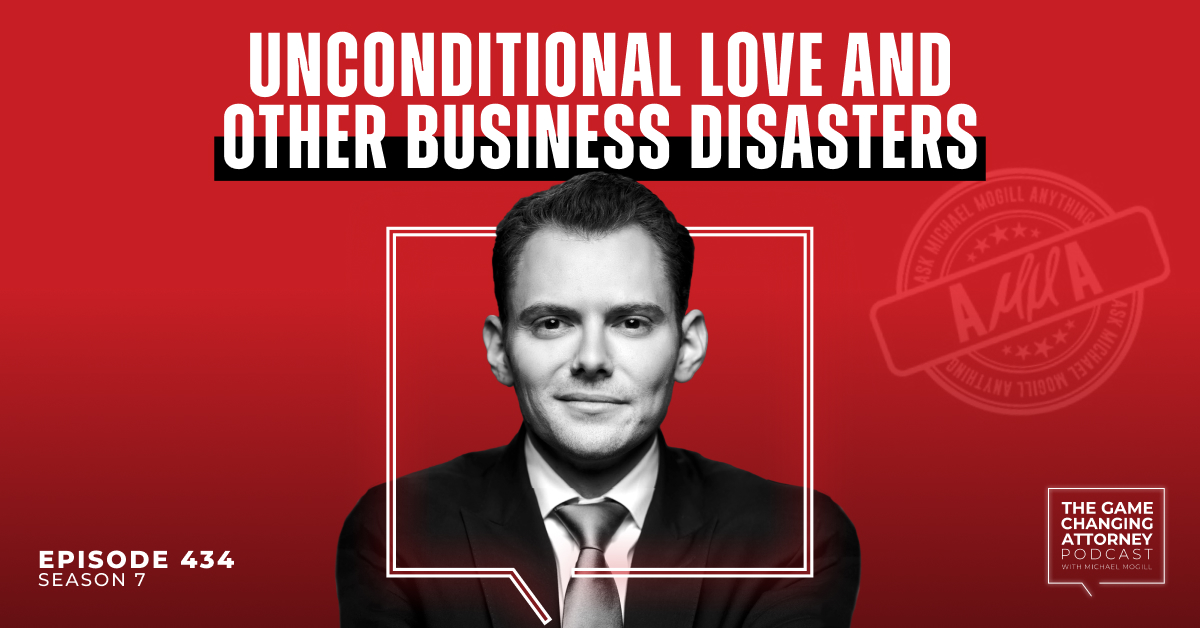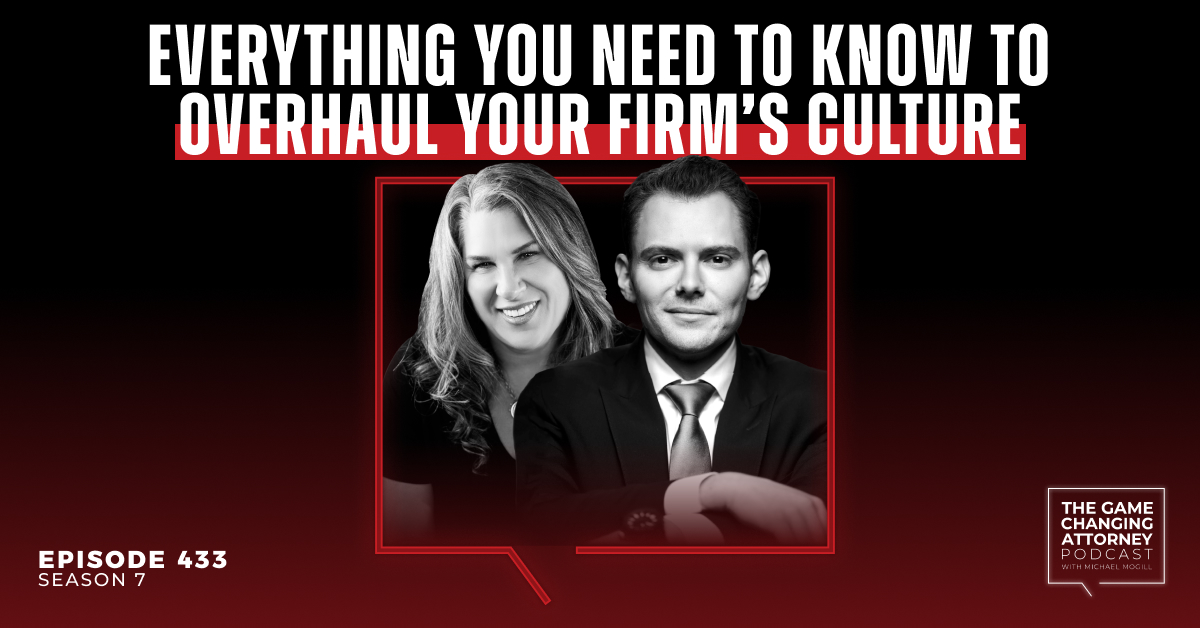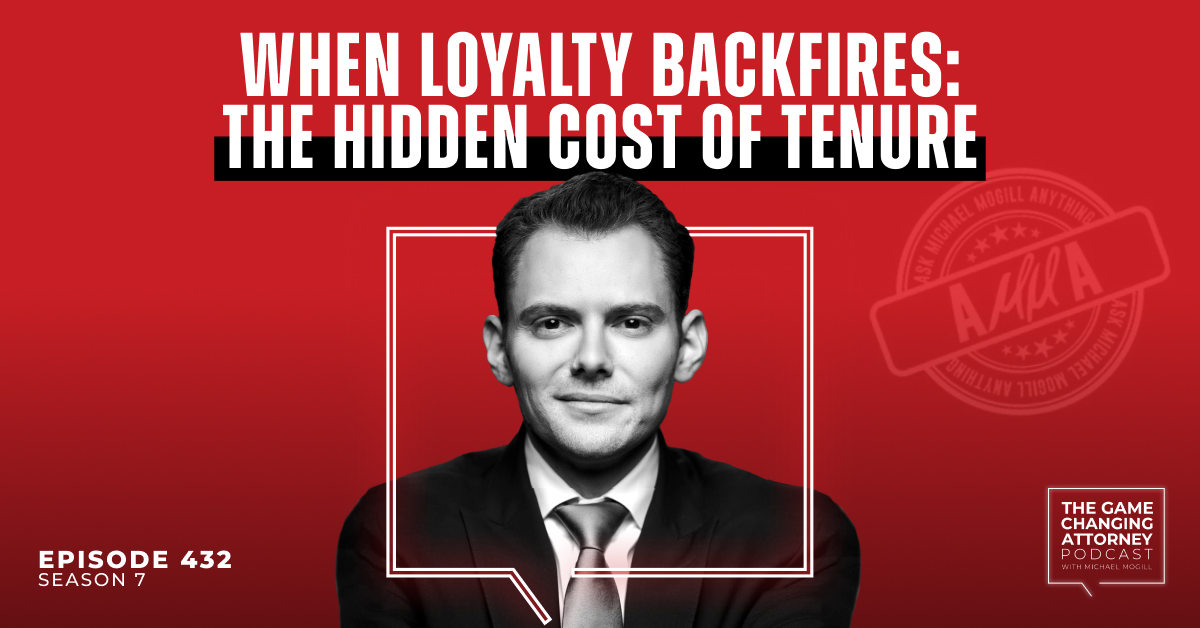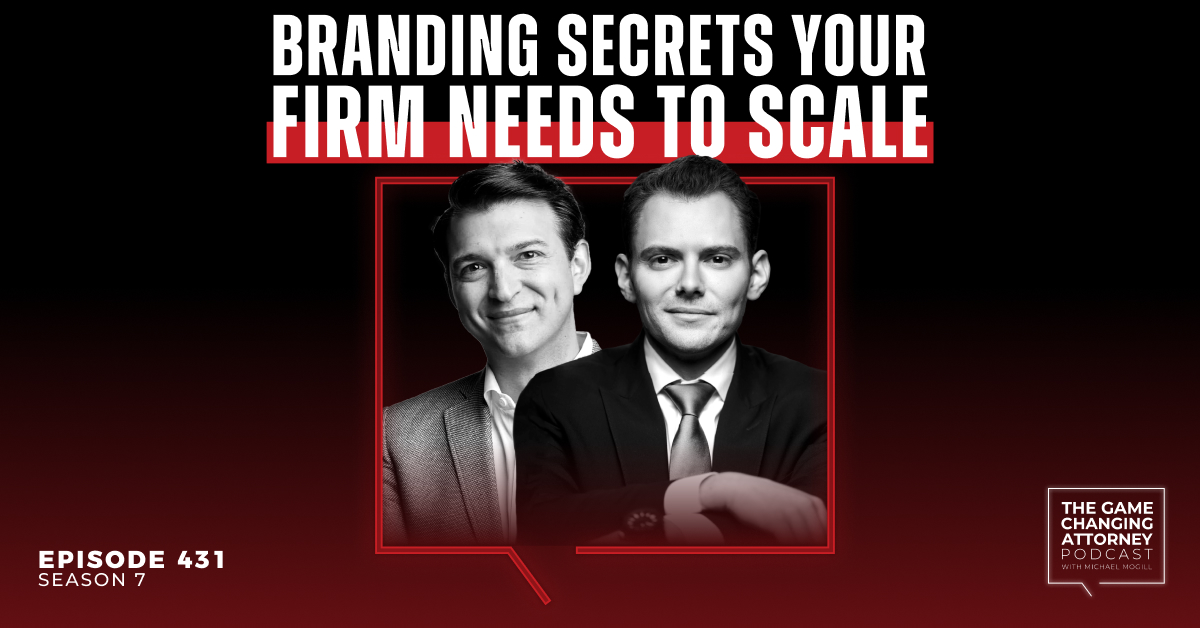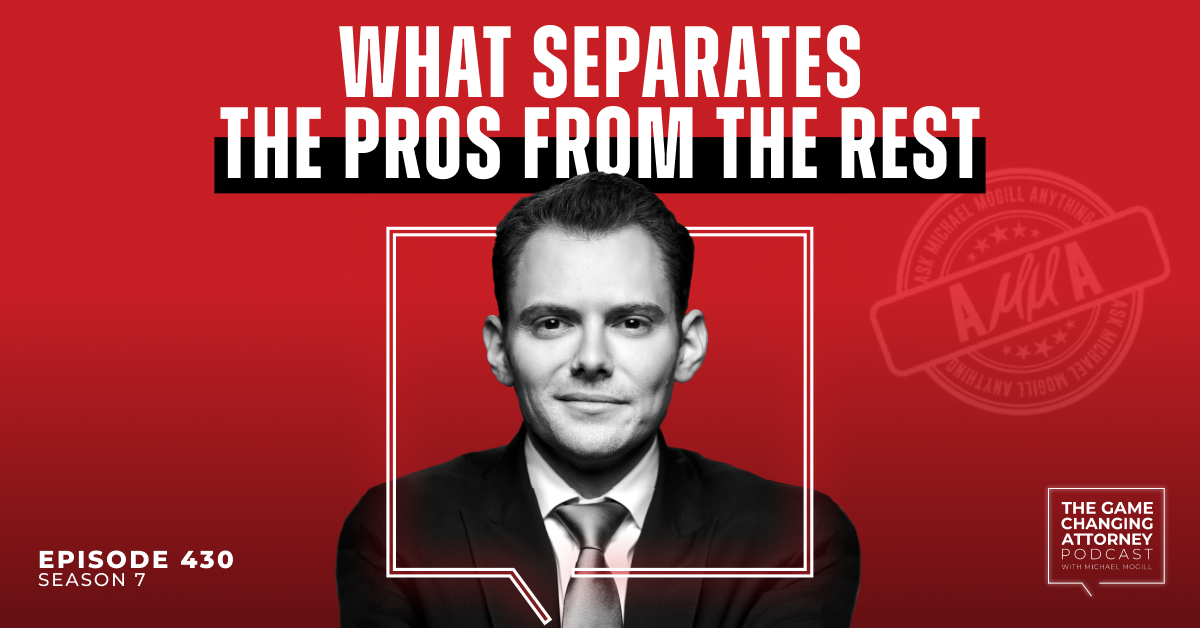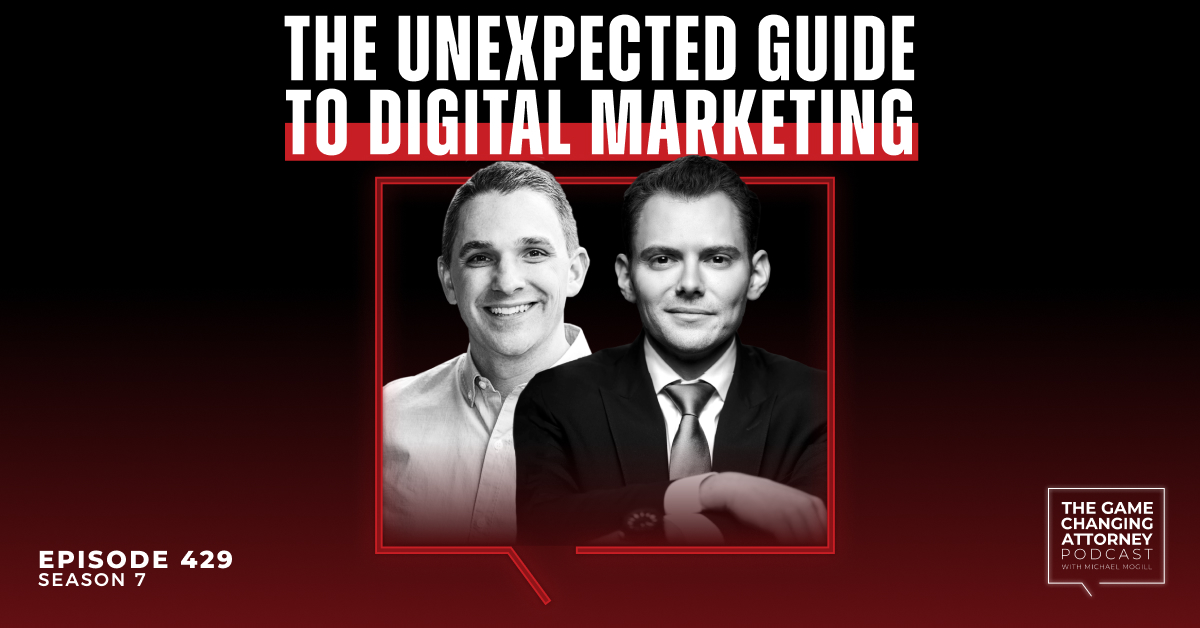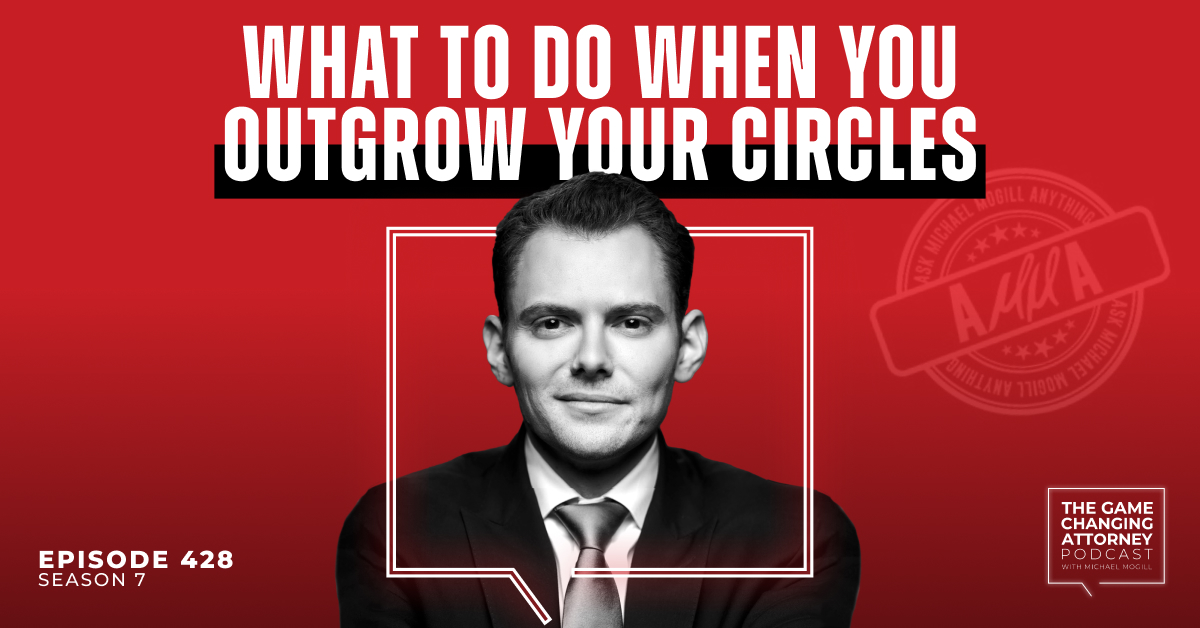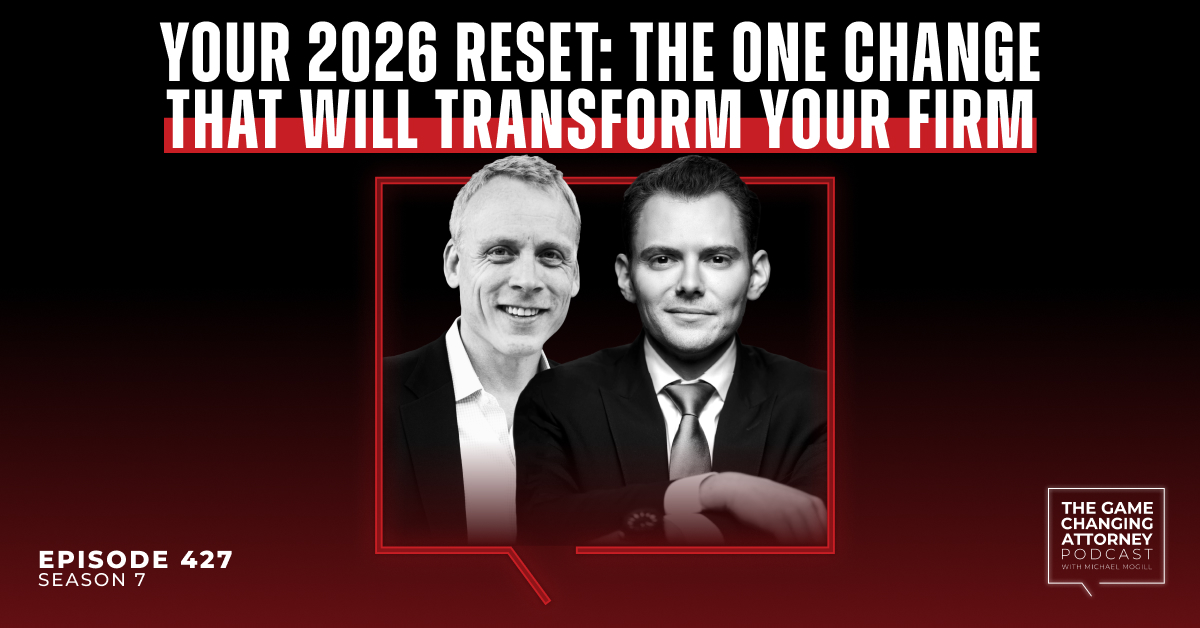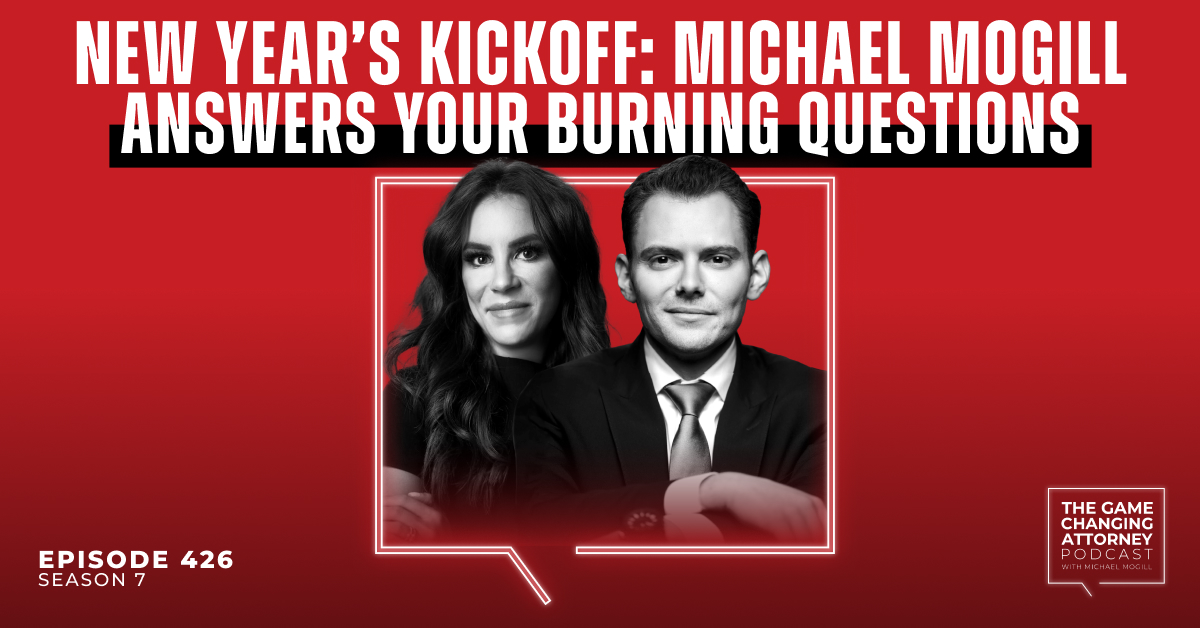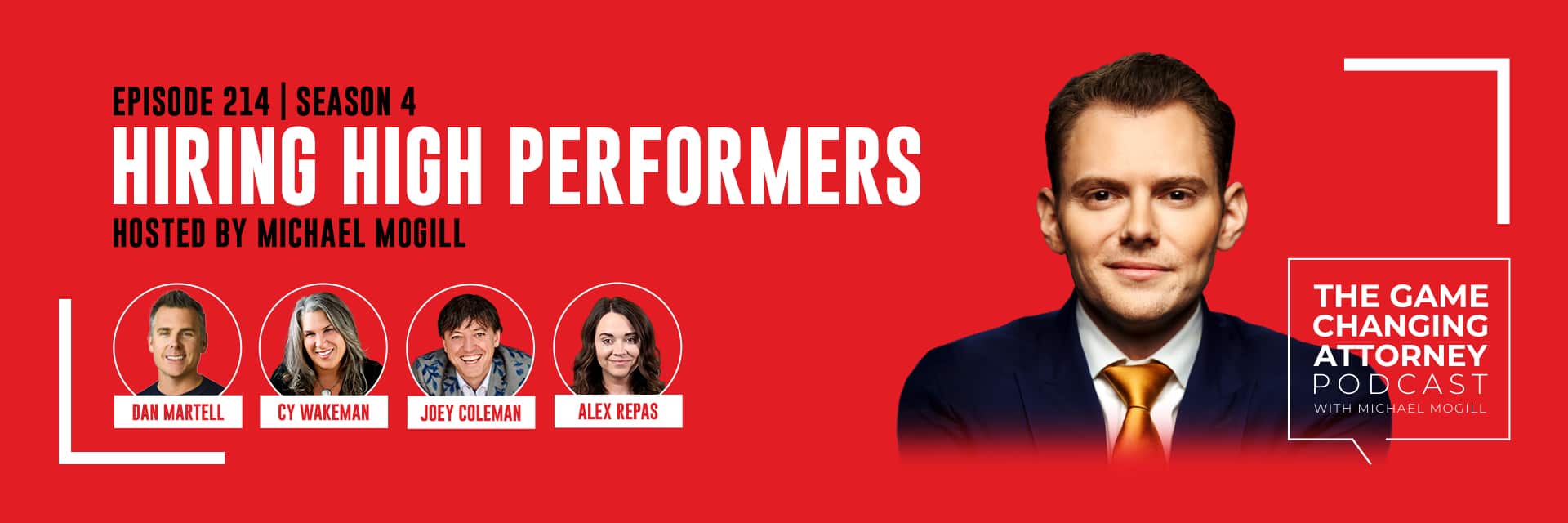
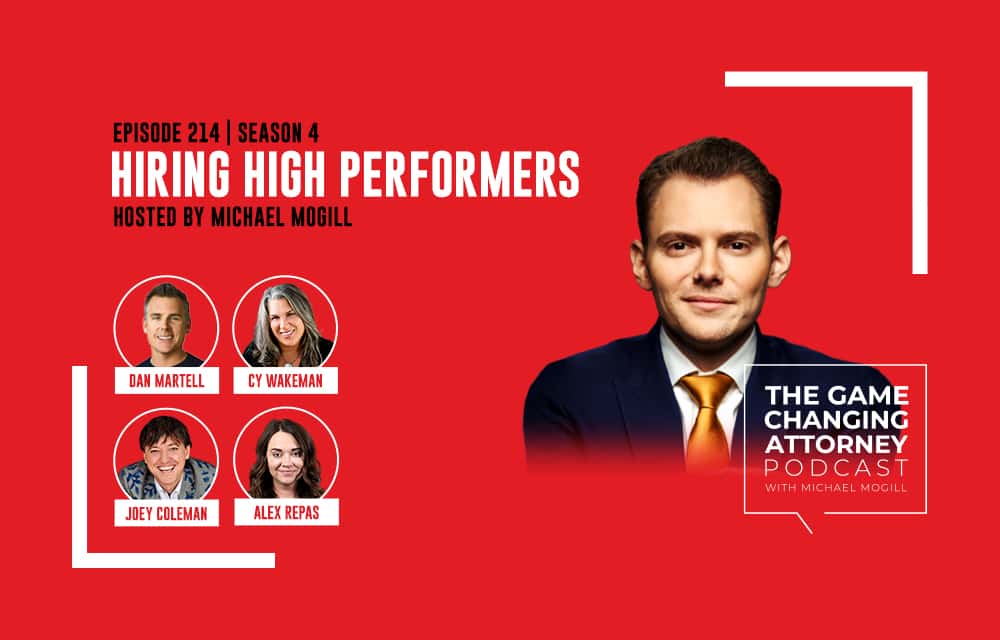
Episode 214 — Dream Team: How to Hire and Keep High-Performing Talent
The team you build is the company build. So how can you ensure you’re building the high-achieving team that can make your vision a reality?
This special edition episode of The Game Changing Attorney Podcast features some of the industry’s most forward-thinking ideas and insights when it comes to attracting and hiring A-players.
You’ll experience key conversations with:
- Dan Martell: CEO of Saas Academy and Best-Selling Author
- Cy Wakeman: Workplace Drama Expert and Best-Selling Author
- Joey Coleman: Award-Winning Speaker, Best-Selling Author, and Retention Expert
- Alex Repas: Crisp Chief Operating Officer
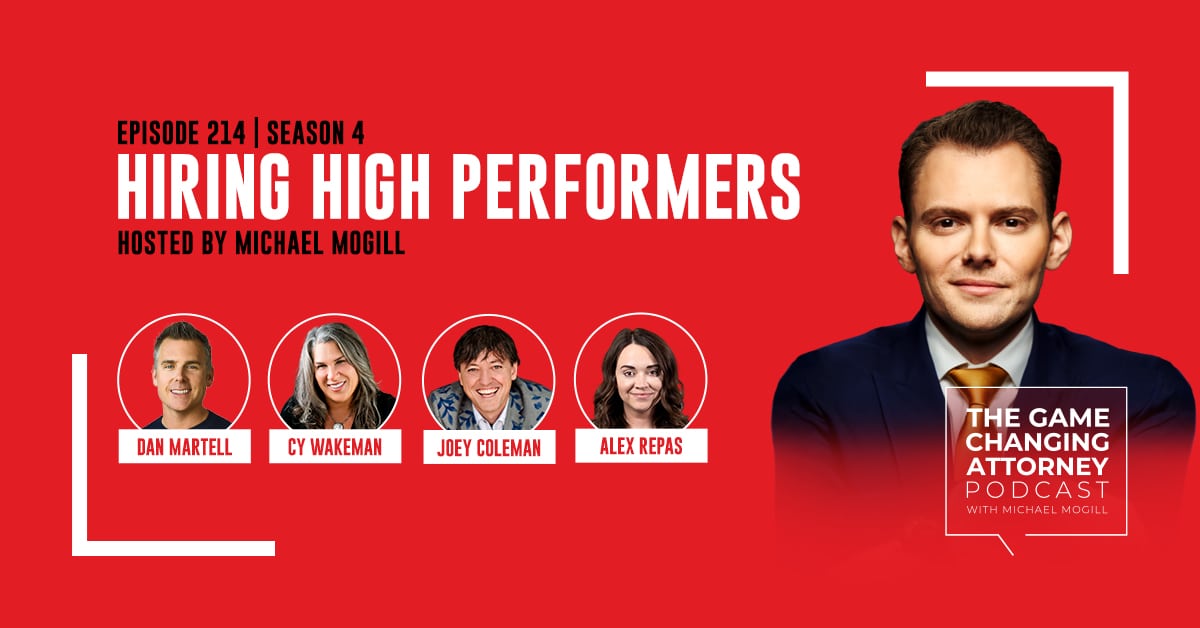
Listen & Subscribe
Show Notes:
Dan Martell
Calendar over capacity. “Most people, when they hire individuals to help them in their business — contractors, team members, part-time people, full-time, it doesn’t matter — when you spend dollars on labor, to hire somebody, most people do it to add capacity to their business. ‘I’ve got demand now. I need help with shipping. I need help with writing more code. I need designers because I have a design agency or a PR agency or whatever. I’ve got somebody that does fabrication.’ Whatever it is, they’re like, ‘I’ve got a capacity problem.’ The challenge with that is you could hire people to add your capacity, but it actually doesn’t make your life better. If anything, it adds complexity. More people means more things you have to manage, and if you haven’t bought back the lower-value tasks to free up your time to go do the higher-value stuff, then that’s where you end up building a business that might have grown in top-line revenue, but you actually make less profit because you hire out of sequence.”
Don’t build a business you grow to hate. “We don’t ever want more than five to seven direct reports. If you’ve got a dozen, I know what your life looks like. I know where your head’s at, and it’s not fun. Unfortunately that’s the pain line that usually happens at about $1.2-1.3 million in revenue and about 12 people. When I get the call and people and entrepreneurs are like, ‘Okay, I can’t do this. I’m clearly doing it wrong. Tell me how.’ I’m usually like, ‘Just get the book. Follow the process. Call me if you’re confused.’ But the replacement ladder clearly outlines that sequence, because I think sequencing equals success. If we follow that, it’s really impossible for you to build a business that you grow to hate.”
Cy Wakeman
A high accountable workplace. “A lot of people say, ‘Oh Cy, it’s so hard to find good talent.’ When I hear that, I don’t experience that as an employer, but then I see the flaw in their logic — they think they have to win the talent war in their city for people in that profession. And I’m like, ‘No, you just have to be the best place for high accountables to work.’ It’s not a very hard competition. If you and I are being chased by a tiger, I don’t have to beat the tiger; I just have to beat you. So I just have to have a clean workplace where high accountables love working.”
The true value of an employee. “They need to deliver what the organization requires. A lot of people have technical knowledge, but they won’t deliver it for the organization. They hoard it. They have to deliver what the organization requires, but then they have to be growing and developing so they will assure us they’ll be relevant into the future. And then a big number most people don’t think about is what’s their true cost? What’s the cost of them in addition to their salary and benefits? What’s their freak-out factor? What’s their maintenance fee? What is their hassle factor, their drama quotient? For a lot of people, the ego forgets that stuff and accepts it as the cost of doing business and it overvalues the other stuff. We really do poor math.”
Joey Coleman
New hire’s remorse. “The scientifically proven fact is that immediately after accepting a job offer, a new employee begins to doubt the decision they just made. I mean, it literally happens in the seconds after they sign their offer letter. Why is this? Well, a couple of things happen. Number one, the dopamine release that comes with getting the offer, that excitement, that joy, that euphoria starts to fade along with the dopamine receding from the brain, and now they feel fear and doubt and uncertainty about the choice they just made. ‘Should I have negotiated for a better deal? They said this is all they could offer and these are the usual benefits, but if I would have pushed more, could I have gotten more?’ It’s also the case that top talent is probably interviewing at a lot of different places at the same time. And so when they accept your job offer, there are probably outstanding interviews they’ve done that haven’t resulted in an offer yet, and they’re wondering, ‘Well, if I wait a little longer, is that the one that would have been the better thing?’ That fear and doubt and uncertainty that they’re feeling is usually matched by what from the employer? Oh, that’d be very little communication. We’ve said, ‘Hey, we’ve got the job offer. Great. We want you to start three weeks from now on Wednesday.’ There’s no other communication happening. So in that Affirm stage, we need to affirm their choice to work with us.”
Don’t burn bridges. “Advocates aren’t just limited to your W2 employees. Advocates can be anyone who ever worked for your organization. The best thing you can do as an employer is to make your offboarding when an employee leaves as remarkable as the onboarding was when they came in. For so many employers, it’s like, ‘Oh, you’re leaving. Let me throw a match and burn that bridge. You’re dead to me. I never want to talk to you again.’ And it’s like, why not have that person as an advocate in the marketplace who when asked, ‘Hey, where’s a great place to work?’ or ‘I’m thinking about applying at this place,’ they go, ‘Oh my gosh, that was the best place I ever worked. They’re amazing there. You should totally apply.’?”
Alex Repas
Top-grade your organization. “I think it’s very common for young organizations to hire entry-level individuals because that’s what you can afford at the time. Over time though, and as you grow and scale, you need true subject matter experts. At the time, we had never hired certain roles to have five to 10 years of experience that could teach other people in the department. You were the teacher for the entire organization. That’s not sustainable, and that’s not something that I think you were willing to continue doing until the end of time. It’s a huge investment. It can be extremely tumultuous. A lot of people will not understand it. And so you take a little bit of a beating for a little bit, and then over time you end up with a really, really amazing team with a variety of different skill sets and years of experience where you’re able to really grow everyone in the room.”
How to attract a great Operator. “First, as the owner of the company, you’ve got to figure out what you’re looking for. That being said, I don’t think it’s necessarily finding an Alex, but rather finding out what you bring to the table where an Alex or a great COO or Operator wants to find you. Really great and talented people are looking for organizations that they align with and can see themselves at for a long time.”’
EPISODE RESOURCES & REFERENCES
Episode 187 — Dan Martell
Episode 7 — Cy Wakeman
Episode 191 — Joey Coleman
Episode 131 — Alex Repas
Connect with Michael
- Text directly at 404-531-7691
